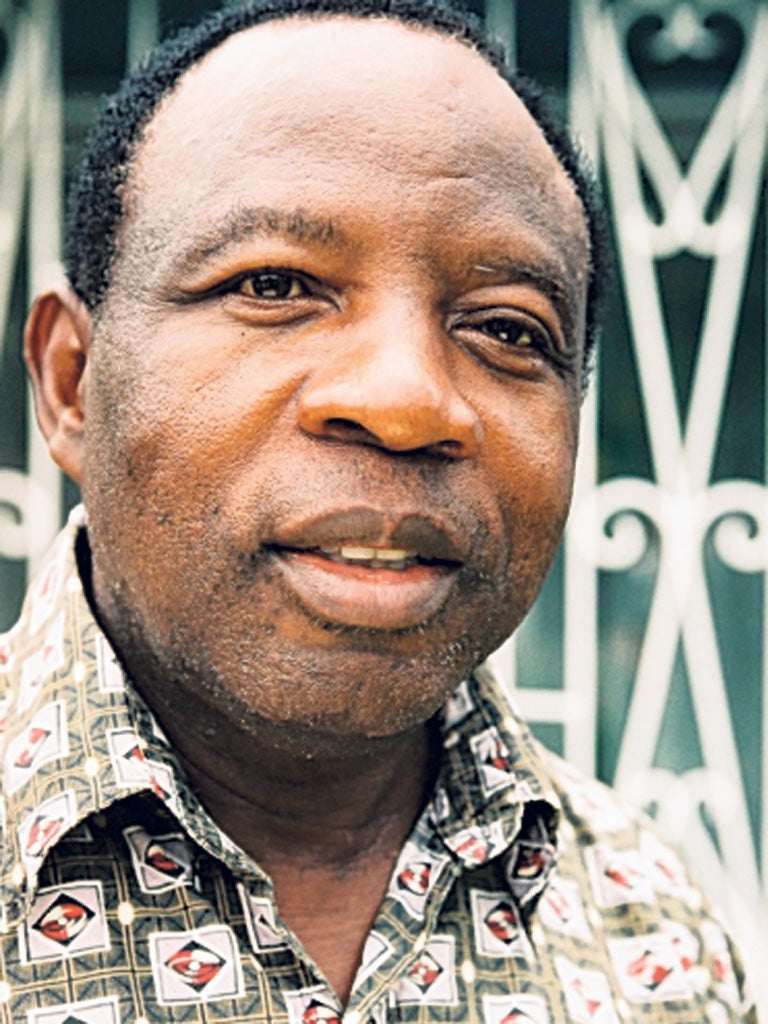Winston Riley: Prolific songwriter and producer

The record producer, songwriter and singer Winston Riley was a mainstay of the Jamaican music scene and one of its most successful figures for close to five decades. In the 1960s he formed The Techniques and sang bass with the vocal group popular throughout the ska and rock steady eras for their joyous adaptations of US R&B hits by The Impressions – "You Don't Care" and "Minstrel and Queen (Queen Majesty)" – and The Temptations – "I Wish It Would Rain" – as well as his compositions like "Love Is Not A Gamble" and "Everywhere Everyone".
In 1970, he co-wrote and produced the infectious and much-covered "Double Barrel" by Dave & Ansel Collins which became a skinhead favourite and topped the British charts the following year. In 1973, again with the keyboard-player Ansel Collins, he originated the "Stalag 17" riddim, one of the most "versioned" instrumental tracks in reggae – most notably for the 1979 Jamaican No 1 "Arleen" by the DJ and toaster General Echo, the pioneer of the "slackness" genre that emphasised sexually explicit lyrics and dominated Jamaican sound systems in the 1980s and '90s.
"Well, someone was going to do it," was Riley's defence, and, to be fair, he also produced and championed the dancehall DJ and singer Sister Nancy. whose anthem "Bam Bam" – coincidentally recycling the "Stalag 17" riddim – he issued on his own Techniques label in 1982. Riley also launched the careers of Frankie Paul, Cutty Ranks, Tenor Saw, Lone Ranger and the controversial ragga artist Buju Banton.
Born in 1946, he attended Kingston Senior School where he met Keith "Slim" Smith, Franklyn White and Frederick Waite, who joined him in the original line-up of The Techniques. In 1962 they began performing at the Chocomo Lawn, a club run by the future Jamaican Prime Minister Edward Seaga, and were introduced to the American rhythm and blues vocalist Major Lance, with whom they did their first recording. "He told us we carried a fantastic harmony," Riley recalled.
The Techniques won several talent contests and cut "No One", a UK-only release in 1963. They toured with the band leader Byron Lee and made a series of wonderful singles for the producer Duke Reid at his Treasure Isle studio, starting in 1965 with "Little Did You Know" and taking in "I'm In Love", "Telling Lies", "When You're Wrong" and "I'm In The Mood For Love". In 1966, Smith left and was replaced by Pat Kelly, whose sublime falsetto graced "You Don't Care", "My Girl", "It's You I Love" and "Run Come Celebrate". Over the next 15 years, The Techniques featured half a dozen different vocalists, including Lloyd Parks and Bruce Ruffin, alongside Riley, the only constant. "Sometimes you may be the leader but you have people dictating and some don't want to follow orders," he remarked.
In 1968, with the financial help of his mother, he launched the Techniques label and concentrated on production with The Shades, The Sensations, Johnny Osbourne, Alton Ellis, The Viceroys and Dennis Brown. "Turning into a producer is not an easy road," he said. "The artists themselves call you a thief, no matter what you do for them. I used to say that once too, until I become part of the game. But what we never knew then was that writing was a great thing."
A prolific hitmaker, Riley excelledat the laid-back roots reggae and dub of the early- to mid-'70s but easily made the transition to the more boisterous DJ style of the late '70s and the risqué dancehall and ragga of the '80s and'90s during which the sing-jay Tenor Saw revisited "Stalag 17" to create "Ring The Alarm". He also worked with Super Cat, Super Beagle, Courtney Melody, Admiral Tibet, Yami Bolo, Red Dragon, Papa San and Lady G, Gregory Isaacs and Sanchez.
In 2008, Riley refurbished his studio and shop and turned part of the building into a museum dedicated to Jamaican music. However the premises were fire-bombed the following year. Last autumn, he was shot and stabbed on two separate occasions in Kingston. Following another attempt on his life at his home last November, during which he was shot in the head, he was in a coma and eventually died of his injuries. His son Kurt Riley, who is a radio presenter in Jamaica, said his father "always wanted people to be creative and original. He didn't want people to re-create the wheel. He wanted reggae and dancehall to cross new boundaries."
Winston Riley, singer, songwriter, producer and label owner: born Kingston, Jamaica 1946; married Yvonne (deceased; several children); died Kingston 19 January 2012.
Join our commenting forum
Join thought-provoking conversations, follow other Independent readers and see their replies
Comments
Bookmark popover
Removed from bookmarks